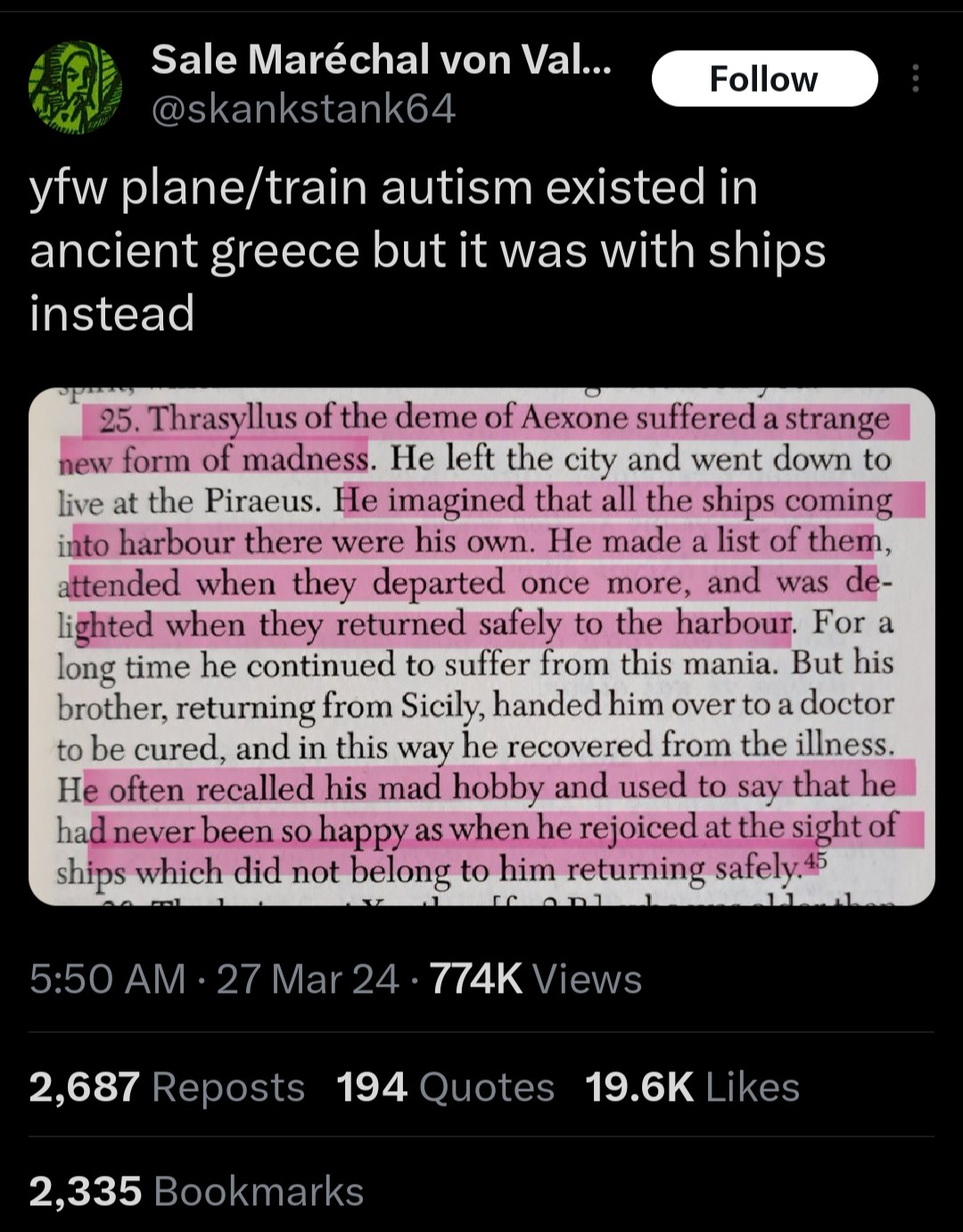this post was submitted on 24 Jul 2024
171 points (100.0% liked)
Chapotraphouse
14176 readers
632 users here now
Banned? DM Wmill to appeal.
No anti-nautilism posts. See: Eco-fascism Primer
Slop posts go in c/slop. Don't post low-hanging fruit here.
founded 4 years ago
MODERATORS
you are viewing a single comment's thread
view the rest of the comments
view the rest of the comments

To the last bit about rejoicing when ships return home safely, I ma reminded of a poem by some old English dude:
I didn't realize that the whole sentiment of the poem was that humanist. I've only ever heard the last two lines in different contexts and transformed. It's a beautiful piece of art and much more positive (neutral?) than I understood it to be.
Yeah its one of my favorite poems, so kind
I wanted to discuss this a bit more so I'm replying lol
It's a really really strong inversion of the contemporary element of church bells. Perhaps because we've grown somewhat disconnected from the actual usage of church bells for a funeral; the frequent usage of the bells as foreshadowing or to symbolize imminent death of the perspective the audience is supposed to take on is completely incongruent to its usage here.
Perhaps in the most famous modern example Metallica's song "for whom the bell tolls" has the perspective people hearing the bell roll for themselves as they die foolishly for a piece of ground. However, this to me, seems only possible because of that disconnect from their purpose. The bell tolls are a carrier of news rather than a harbringer of your impending doom.
I hadn't read this poem before, or at least I don't remember reading it, so this seems a very novel usage of the concept.
I love how the poem takes on this fresh existence entirely because life has morphed and moved on around it.
Sincerely, thank you for sharing.
Hey you're very welcome and thank you so much for sharing your thoughts on this.
I imagine Metallica aren't referencing the poem, but the Hemingway novel of the same name. The novel starts out with referencing this poem though, which is a kind of fun 1-2. Maybe that novel is what changed the idea of "for whom the bell tolls"?